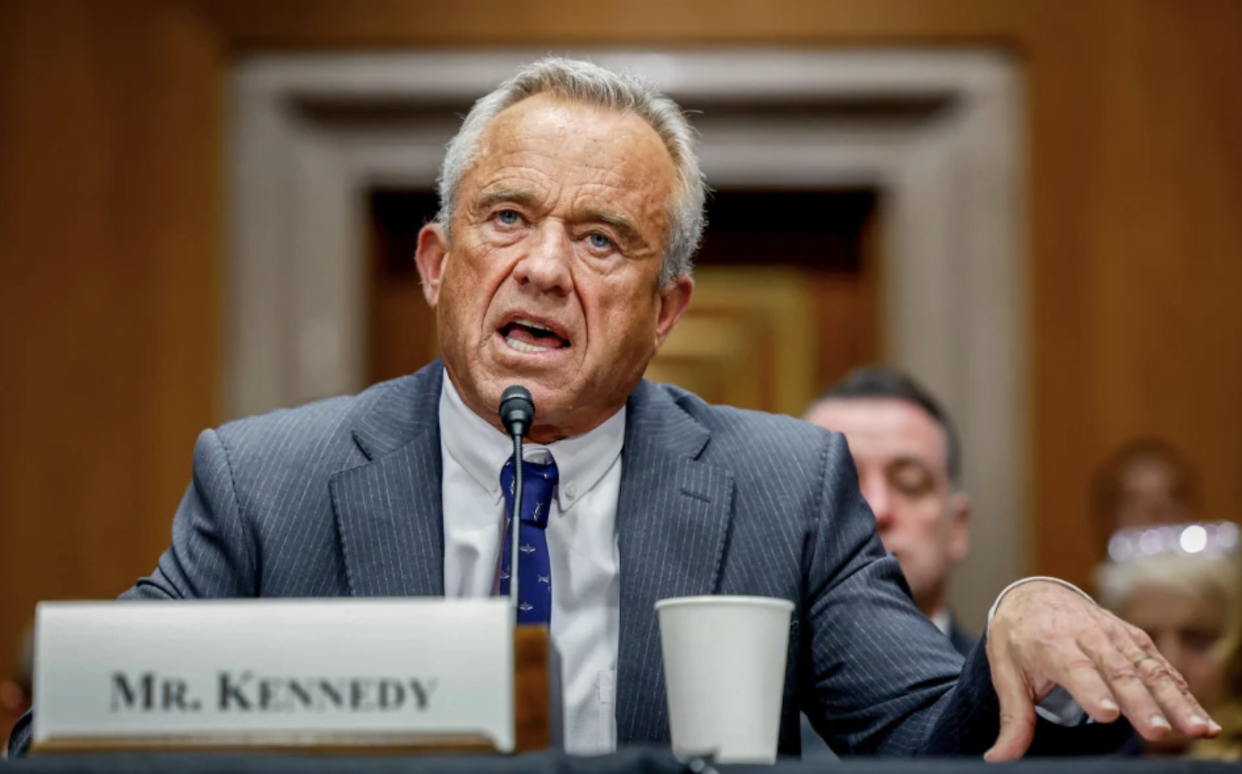Photo via NBC News
***
On February 13th, 2025, the United States Senate voted to confirm Robert F. Kennedy Jr. as President Donald Trump’s Secretary of Health and Human Services (HHS). The Department of Health and Human Services is responsible for the nation’s health policy and oversees a number of agencies including the Center for Disease Control (CDC), National Institutes of Health (NIH), and Food and Drug Administration (FDA). Kennedy’s appointment to this position is an incredibly significant development considering his contentious political beliefs and his drastic plans as Secretary of HHS.
Kennedy is the son of former U.S. Attorney General Robert F. Kennedy and the nephew of former US President John F. Kennedy, who were both assassinated in the 1960s. Throughout his career, Kennedy has worked as an environmental lawyer, notably founding the Waterkeeper Alliance, the largest clean water advocacy organization in the world. More controversially, he founded Children’s Health Defense which, despite branding itself as a children’s health protection agency, actually promotes the anti-vaccine movement. Children’s Health Defense has falsely claimed that vaccines are behind several childhood illnesses and developmental delays, including autism. The lone Republican to oppose Kennedy’s nomination, Senator Mitch McConnell, cited his reason for declination as Kennedy’s opposition to vaccines, as McConnell is a polio survivor.
Kennedy’s appointment seems to be an alliance of convenience, not of ideology, as Kennedy has been a registered Democrat for decades, an environmental lawyer, and a supporter of abortion rights. Contrasting many of Kennedy’s views, until now, Trump’s policy priorities have never included ending the chronic disease epidemic. What is more likely to have happened is, after his failed 2024 presidential campaign, Kennedy went to both then-Vice President Kamala Harris’s and Donald Trump’s campaigns and asked for an administration role in exchange for an endorsement. Harris declined, and Trump agreed, leading to Kennedy endorsing Trump shortly after. Kennedy likely saw making a deal with one of the two major party nominees as the best opportunity to impact American public health policy.
Kennedy has promoted debunked claims surrounding COVID-19 regarding ineffective government responses, vaccine efficacy, “miracle cures,” and racist and antisemitic theories about the origin of the pandemic. During his confirmation hearing, Senators raised concerns about how this susceptibility to misinformation and the firing of qualified personnel would affect the government’s ability to respond to another pandemic, but, in the end, he was still confirmed.
Kennedy has been a strong critic of what he sees as the “over-prescription” of mental health drugs, raising concern that he would remove drugs that people rely on from the market. Experts emphasize that these drugs are found to be safe and effective and are usually paired with other types of treatment. Another aspect of Kennedy’s proposals to treat the nation’s drug crisis is a series of “therapeutic farms,” where people suffering from drug addiction can undergo rehabilitation.
After Kennedy was confirmed, Trump signed an executive order allowing for the removal of federal funds from schools, colleges, and states with COVID-19 vaccine mandates. However, critics note the order is largely performative, as few schools still have COVID-19 vaccine mandates. Kennedy has advocated for investigating vaccine safety data to share with the public, but he has denied wanting to ban any vaccines.
Another target of Kennedy’s HHS will likely be food companies, who, alongside pharmaceuticals, Kennedy blames for Americans’ poor health. He has advocated for a ban on food dyes, additives, and certain pesticides, similar to the regulatory standards in Europe. Kennedy has also stated he only drinks raw milk, which could point to him approving the sale of the beverage nationwide. Up to thirty states currently allow for the beverage to be sold, but doing so can lead to foodborne illness and the spread of pathogens.
Kennedy has also been an opponent of fluoridated drinking water and has called for it to be removed, claiming it is associated with arthritis, bone cancer, and neurodevelopmental disorders. This claim is also disproved by the CDC and the American Academy of Pediatrics, as the fluoride levels in drinking water are safe and are in place as a matter of public health to help reduce cavities.
Health policy endorsed by Kennedy, often contrary to scientific evidence, will have wide-ranging consequences for US health for years to come. These policies could include increased vaccine hesitancy among the public, less effective responses to public health crises by the government, and a potential for increased disease outbreaks. A large part of Kennedy’s popularity, both in his 2024 campaign and currently, likely stems from the distrust of public officials and online misinformation surrounding the COVID-19 pandemic. Partially due to prominent figures like Kennedy, the damage done to the perception of public health will likely be one of COVID-19’s most lasting legacies, leading to continuing concern about the nation’s health direction.
***
This article was edited by Isabel Adkins and Teagan Munafo.
